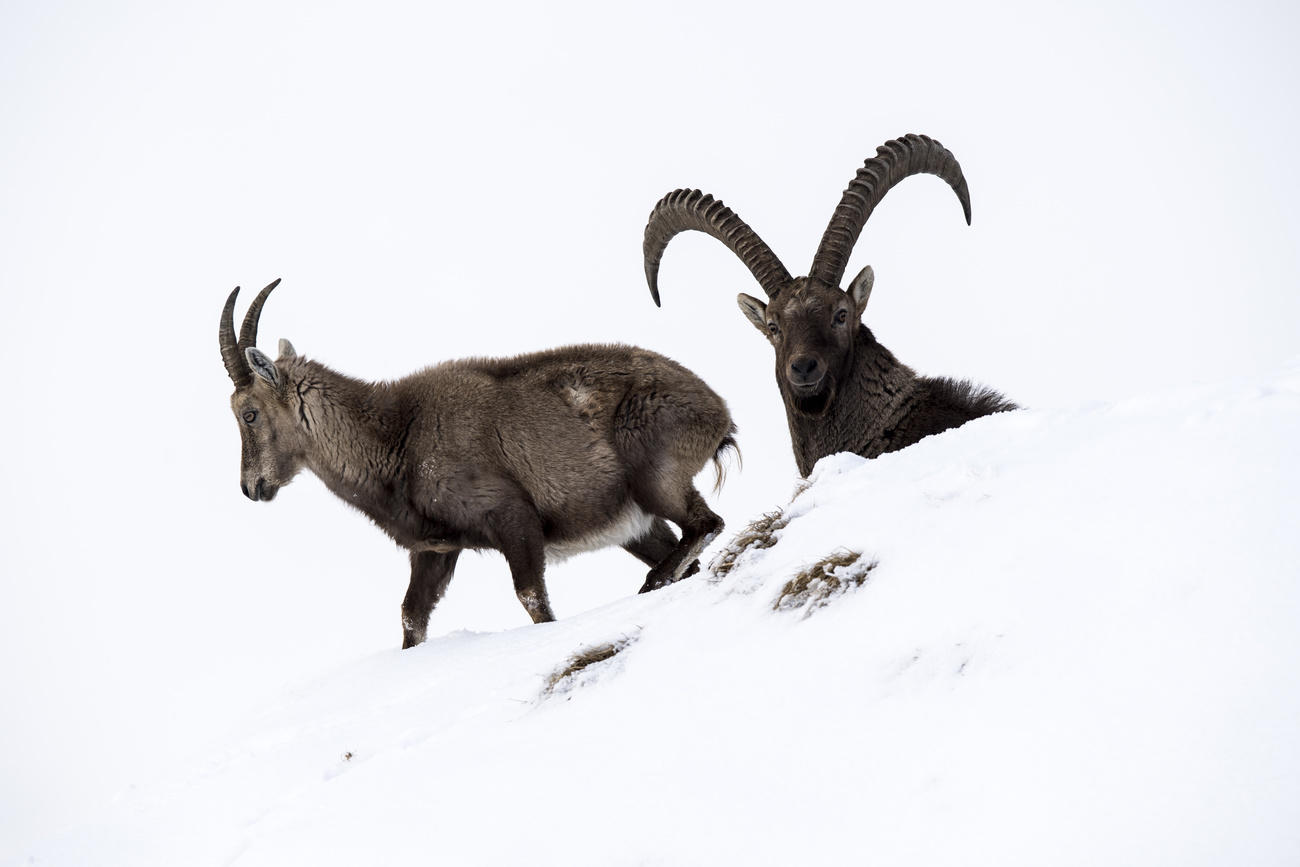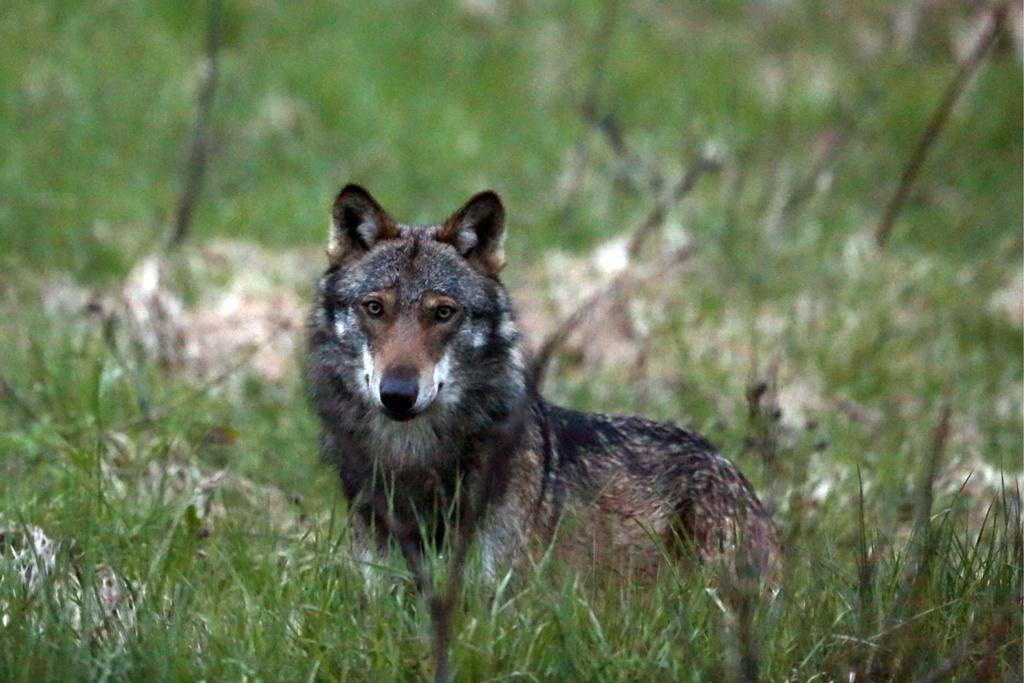
Trophy hunters pay thousands to kill iconic Swiss animal

Previously extinct in the Swiss Alps – and prized for their impressive horns – ibex have become a valuable source of income in western Switzerland.
A report by Swiss public television, RTSExternal link, explains how canton Valais earns about CHF650,000 ($656,000) per year selling day permits for ibex hunters and charging hefty fees for their souvenirs: the horns of the fallen animals. An ibex with metre-long horns yields CHF13,000, with every extra centimeter costing another CHF500. The most impressive specimens are worth as much as CHF20,000. Roughly 100 hunting permits are granted per year.
The canton is not the only one earning money. Travel agencies sell ibex-hunting packages that handle the administrative details and include accommodation and a wildlife guide. The RTS report aired on Sunday includes this video that had been posted online. It features an American tourist near Ardon:
In a Skype interview with RTS, American hunter Olivia Opre described her experience as “a wonderful adventure in the Alps; we were guided by wildlife rangers to flush out the animals. I was able to shoot a male ibex, a big, powerful one. My friend Denise shot two, including a trophy of over a metre.”
Opre posted photos of her hunting experience on her Facebook page:
A Swiss wildlife photographer interviewed by RTS criticized the trophy-hunting practice, noting that mature breeding males are the most coveted trophies.
The director of the Valais hunting departmentExternal link, Peter Scheibler, told RTS that this was not a problem. He said only old animals were shot during these hunting safaris, “many of which would not survive the winter, anyway”. Asked about the ethics of installing salt licks to attract ibex to the hunting zone, Scheibler said it was an “essential dietary supplement” for the animals.
The ibex meat is left to rot or be eaten by other wild animals because the trophy hunters only take the heads. A male ibex weighs anywhere from 70-120kg, and hunters are not permitted to use helicopters to airlift the headless carcasses.
Swiss conservation group Pro NaturaExternal link – the logo of which is an ibex – has decried ibex trophy hunting as senseless. “It gives Valais and hunting in general a bad image. If these animals really have to be regulated, it’s the job of wildlife rangers,” a spokesman told RTS.
On Monday, the platform Change.org launched a petition calling for a banExternal link on ibex trophy hunting. As of Wednesday it had over 30,000 signatures.
Ibex statistics
Local gamekeeping statistics show that every year, Valais culls 36% of all ibex aged 11 and up. For Jean-Michel Gaillard, research director at the French National Centre for Scientific ResearchExternal link, this proportion is very high. “Ibex with long horns are the oldest. These powerful males are the ones who reproduce, not the young ones. If too many are culled, the balance of the herds is threatened,” Gaillard told RTS. In France as well as Italy, Alpine ibex are a protected species.
The Valais hunting department counters that its local ibex population is doing well. In the Alps there are some 40,000 ibex, with about 17,000 of them in Switzerland.
In a follow-up story on RTSExternal link, Jacques Melly, the politician in charge of local hunting policy, said that since April, talks had been underway to decide if ibex trophy hunts should in fact be banned.
“But in any case, 450 ibex in Valais need to be culled each year,” Melly said, noting that the canton had about 5,000 of the sure-footed animals, compared to 3,000 some 20 years ago.

More
In the thrall of the mountain king

More
Dead wolf shows shotgun wound
Adapted from RTS/swissinfo.ch/sm

In compliance with the JTI standards
More: SWI swissinfo.ch certified by the Journalism Trust Initiative


























You can find an overview of ongoing debates with our journalists here . Please join us!
If you want to start a conversation about a topic raised in this article or want to report factual errors, email us at english@swissinfo.ch.